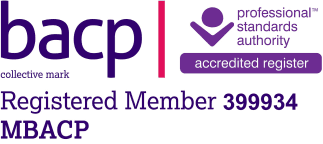My Philosophy
At the heart of my approach is humanism—a holistic and embracing perspective that seeks to understand people as whole, unique individuals. I believe that every person is inherently “okay” and possesses an innate capacity for growth and self-actualization.
As an integrative psychotherapist, my style is compassionate, empowering, and explorative. I am dedicated to creating an open and collaborative environment where you feel safe, respected, and at ease. This is your space to share your thoughts and emotions at your own pace, knowing that you will be met with genuine care and understanding.
I bring years of experience working with individuals in a variety of settings, including the NHS, charities, and private practice. It has been a privilege to work with people from diverse backgrounds, each with their unique strengths and challenges. My perspective has been enriched by my cross-cultural experiences, having lived in China, Australia, the United States, and for over a decade now, the UK. These experiences have given me a deeper appreciation of identity, belonging, and the challenges of adapting to new environments. They have also helped me understand the nuances of building meaningful relationships across cultures and navigating the complexities of change.
This broader perspective allows me to attune to and support clients from all walks of life, recognising that each person’s story is unique. I believe meaningful change happens when we work together as a team – where you feel safe, valued, and open to exploring your emotions, challenges, and hopes.
My commitment is to provide a non-judgmental, supportive space where you can reflect, heal, and move towards a life that feels more authentic and aligned with who you are.
How I can work with you
Professional Experience
Professional registration:
UK Council for Psychotherapy (UKCP) - Full Clinical Membership
British Association for Counselling and Psychotherapy (BACP) - Registered member (MBACP)
British Psychological Society (BPS) - Graduate membership (GMBPsS)
British Association for Behavioural and Cognitive Psychotherapies (BABCP) - Advance Trainee
Qualifications:
PhD Psychological Medicine
MA Integrative Psychotherapy and Counselling
MSc Clinical Psychology
MSc Health Psychology
BSc Psychology
MHFA England - Mental Health First Aid Certificate
Clearance and Compliance:
An enhanced DBS (Disclosure and Barring Service) check, which means I am cleared to work safely with both adults and children.
I adheres to UKCP's code of ethical practice, covering confidentiality, supervision, complaints, and continous professional development.

